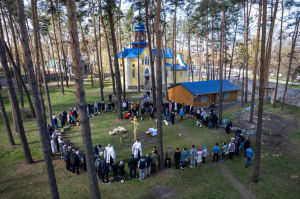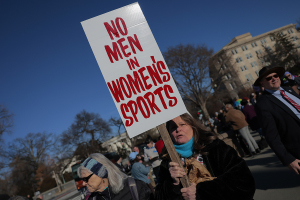Business leaders may face world's worst economic crisis. What now?

There is no doubt many businesses are confronting a brutal operating reality as the impact of COVID-19 sweeps across the world. While this is indeed a health crisis, the history books just may record it as the world’s most devastating economic crisis to date.
What should business leaders do in the face of overwhelmingly dismal circumstances and economic uncertainties?
Chapter 4 of the business classic Good to Great by Jim Collins offers fitting wisdom and a title to instruct us in these challenging times: “Confront the Brutal Facts (Yet Never Lose Faith).” Collins’ premise in the chapter is the good-to-great companies he studied aspired to greatness but “continually refined the path to greatness with the brutal facts of reality.”
Amidst COVID-19, we are facing an indisputably brutal reality: dramatically decreased revenue, business shutdowns, layoffs, and more. An article by the leaders of Praxis, accelerator of redemptive entrepreneurship, gives good counsel for confronting what they predict to be the "blizzard, long winter, and little ice age" ushered in by COVID-19. Indeed, this is and will continue to be a brutal business climate.
For the Freedom Businesses our organization represents, the impacts of this pandemic are chilling. These businesses exist to employ survivors of human trafficking and those at risk, so the ones losing their jobs are the most vulnerable among us. And we know that 80% of survivors of human trafficking will be re-trafficked absent dignified employment opportunities.
Brutal facts indeed.
But there is hope. Collins shares that throughout writing the book, his team was reminded of research done by the International Committee for the Study of Victimization, on people who had suffered serious adversity and survived.
“They found that people generally fell into three categories: those who were permanently dispirited by the event, those who got their life back to normal, and those who used the experience as a defining event that made them stronger. The good-to-great companies were like those in the third group.”
Leaders of Freedom Businesses are all too familiar with these categories, and work tirelessly to ensure the greatest chances those they employ arrive in the third one – stronger, with more skill and self-assurance than their first day on the job, and even sometimes than before they were trafficked in the first place. That is the redemptive power of dignified work.
Brutal fact: After COVID-19 these categories will now apply to Freedom Businesses themselves, many struggling to survive. It will be FBA’s role to help ensure the greatest chances our Member businesses emerge stronger after this crisis than before it. While this strength won’t be immediately apparent after the pandemic is contained, we believe through confronting the brutal facts - examining what worked when stress-tested and what didn’t, and pivoting to models that can prevail - we can grow faster after emerging from this crisis that we would have absent it. This may be the defining event that can make our movement stronger, if we confront the brutal facts, yet do not falter to uphold our vision to scale the number of jobs available to survivors.
This power is derived from what Collins labels the Stockdale Paradox.
The Stockdale Paradox
Retain faith that you will prevail in the end, regardless of the difficulties
AND at the same time
Confront the most brutal facts of your current reality, whatever that might be
The name refers to Admiral Jim Stockdale, who was the highest-ranking United States military officer in the “Hanoi Hilton” prisoner-of-war camp during the height of the Vietnam War. Tortured over twenty times during his eight-year imprisonment, Stockdale lived out the war, shouldering the responsibility of leading amidst unimaginable cruelty and uncertainty.
His overcoming outlook: “I never lost faith in the end of the story…I never doubted not only that I would get out, but also that I would prevail in the end and turn the experience into the defining event of my life, which, in retrospect, I would not trade.”
His experience was so brutal, in just reading about it Collins couldn’t help but feel hopeless despite knowing Stockdale emerges a hero in the end. He wondered, “If it feels depressing for me, how on earth did he deal with it when he was actually there and did not know the end of the story?”
We are now struggling to see when and how the COVID-19 pandemic and its economic impact will end. How will we deal with it? Many will give in to hopelessness. But as leaders of faith, we have an advantage: we know how the story ends. Our calling remains. We will prevail. And we know God is working all things for good, even if we cannot yet see how. This does not give us license for blind optimism, indeed we learn from Stockdale we cannot afford it. But it does give us hope in a cause that seems lost. This is the way of faith amid brutal facts, a way we have been practicing since the very first Easter up to today. As COVID-19 casts its shadow over a hurting world, let us now put that long practice of faith to work.
Rachel Rose Nelson serves as Executive Director of Freedom Business Alliance, the only global network creating business solutions to human trafficking. FBA is currently seeking support for a Freedom Business Relief Fund to ensure their Member businesses emerge from COVID-19 stronger than ever, ready to scale the number of jobs for survivors of human trafficking and those at risk.



























